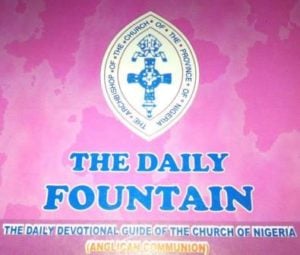Liturgical Readings for : Monday, 4th November, 2024
Monday of the Thirty-First Week in Ordinary Time, Year 2
Memorial of St Charles Borromeo, bishop, made cardinal at 21 years, brilliant catechist
FIRST READING
A reading from the letter of St Paul to the Philippians 2:1-4
Be united in a common mind.- that is one thing which would make me completely happy.

If our life in Christ means anything to you, if love can persuade at all, or the Spirit that we have in common, or any tenderness and sympathy, then be united in your convictions and united in your love, with a common purpose and a common mind. That is the one thing which would make me completely happy.
There must be no competition among you, no conceit; but everybody is to be self-effacing. Always consider the other person to be better than yourself, So that nobody thinks of his own interests first but everybody thinks of other people’s interests instead.
The Word of the Lord. Thanks be to God.
Responsorial Psalm Ps 130
Response Keep my soul in peace before you, O Lord

1. O Lord, my heart is not proud nor haughty my eyes.
I have not gone after things too great nor marvels beyond me. Response
2. Truly I have set my soul in silence and peace.
A weaned child on its mother’s breast, even so is my soul. Response
3. O Israel, hope in the Lord both now and for ever. Response
Gospel Acclamation Ps 118: 18
Alleluia, Alleluia!
Open my eyes, O Lord, that I may consider the wonders of your law,
God’s message and not some human thinking.
Alleluia
or Jn 8:31
Alleluia, Alleluia
If you make my word your home you will indeed be my disciples,
you will learn the truth, says the Lord .
Alleluia
GOSPEL
The Lord be with you. And with your spirit
A reading from the holy Gospel according to Luke 14:12-14
Do not ask your friends; invite the poor, the crippled.

Jesus said to his host,
‘When you give a lunch or a dinner, do not ask your friends, brothers, relations or rich neighbours, for fear they repay your courtesy by inviting you in return.
No; when you have a party, invite the poor, the crippled, the lame, the blind; that they cannot pay you back means that you are fortunate because repayment will be made to you when the virtuous rise again.’
The Gospel of the Lord. Praise to you, Lord Jesus Christ.
****************
Gospel Reflection Monday Thirty First Week in Ordinary Time Luke 14:12-14
Jesus was very aware that in the culture of his time, especially among the elite sections of society, giving was generally with a view to receiving something in return. People like the leading Pharisee in today’s gospel reading, the host at a meal at which Jesus is a guest, would tend to invite the members of his own social class to a meal, so that they would invite him in return. As a result, people of a certain social standing tended to form something of a closed circle. Jesus has a different vision for humanity, where there is genuine communion between people of different social classes and different backgrounds. That is why he challenges his host to broaden his guest list when hosting meals in future, inviting not only his friends and social peers, but those he would not normally associate with, whom he would consider his inferiors, the poor, the crippled, the lame and the blind. They will not be able to give anything back to the host for his generosity but he will receive repayment from God in the fullness of time.
The call of Jesus in the gospel reading is reflected in Paul’s call to the church of Philippi in the first reading, ‘always consider the other person to be better than yourself, so that nobody thinks of his own interests first, but everybody thinks of other people’s interests instead’. Each of us in our own way, in our own sphere of influence, is called to help create, with the Lord’s help, this new kind of diverse community that Jesus began to form during his ministry and continues to inspire as risen Lord. The Lord inspires us to build communion not just with our own kind but with those who are very different from us.
______________________________
The Scripture Readings are taken from The Jerusalem Bible, published 1966 by Darton, Longman & Todd Ltd.







![#KingdompadiMusicVid: James Akinwumi | Our God [@MinisterjamesOF]](https://www.kingdompadi.com/wp-content/uploads/2025/03/WhatsApp-Image-2025-03-03-at-15.05.04_acb15277-150x150.jpg)




